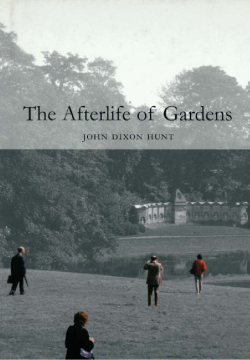
Additional Information
Book Details
Abstract
Most books on the history of gardens describe the way that gardens have been created; by contrast, The Afterlife of Gardens examines the way that gardens have been experienced. Using examples from many sites around the world, John Dixon Hunt examines responses to gardens, from Renaissance sites to Baroque creations to modern motorway landscaping. Examining how a garden has been experienced extends its history beyond the physical into cultural terms, and the author describes how this ‘afterlife’ of gardens, as they are understood and experienced by many generations, is often ‘redesigned’ in visitors’ imaginative and cultural responses.
The author looks at many aspects of the subject, including the enigmatic Hypnerotomachia Polifili of 1499; part fictional narrative and part scholarly treatise, this fascinating early narrative of garden reception paves the way for an exploration of subsequent landscapes and their reception in later periods. He also looks at Italian Renaissance gardens; the Picturesque; the architectural and inscriptional elements of gardens; the ways experiences of gardens have been recorded; and the different kinds of movement within gardens, from the strolling pedestrian to the motorway traveller who experiences landscapes at speed.
In this ambitious new book the author shows how the complete history of a garden must extend beyond the moment of its design and the aims of the designer to record its subsequent reception. He raises questions about the preservation of historical sites, and provides lessons for the contemporary designer, who may perhaps be more attentive to the life of a work after its design and implementation. This book will interest all who have a professional interest in gardens, as well as the wide general audience for gardens and landscapes of past and present.
